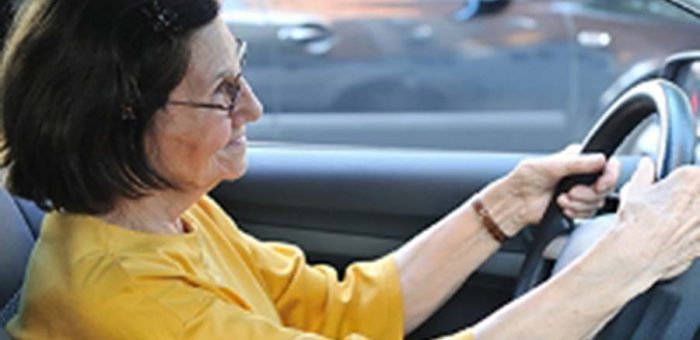We need to improve stressful and unfair driver testing of seniors
Deciding who is allowed to drive and when a driver should have their license revoked is an incredibly important decision that weighs personal freedom against public safety. It’s a tough job tasked to the B.C. Office of the Superintendent of Motor Vehicles in the Ministry of Justice, who then enlists the assistance of driving programs and medical professionals to carry out assessments that inform their decisions. Some, like the written and driving tests many of us took at 16, introduce British Columbians to the driving world. Others, like the Driver’s Medical Examination Report and DriveABLE, are used to ensure current drivers are continuing to drive safely.
There are 96,000 drivers over the age of 80 in B.C., according to ICBC’s 2014 statistics. While keeping our streets safe is undoubtedly the priority, ensuring that mandatory tests are respectful, fair, and effective is also of utmost importance.
Under the current system, when a driver turns 80 they are required to see their doctor for a Driver’s Medical Examination Report (DMER) every two years. The examination covers a lot of ground from eyesight to cardiovascular health to assessing the severity, progression, and treatment of any medical conditions that could affect the driver’s ability to safely operate a vehicle.
This mandatory examination is not covered by provincial health care and usually costs seniors $197 every two years (the fee recommended by the British Columbia Medical Association), but the bill is left to the clinic’s discretion and has been known to range anywhere from $50 to $500. My office called two clinics in my riding; one in Oak Bay charges $105 and another in Gordon Head charges $125.
I agree with the concerns that the Office of the B.C. Seniors Advocate has raised in the past about the indiscriminate DMER pricing scheme. Given that this is a mandatory test for drivers over the age of 80, and that is must be repeated every two years, I believe the cost should be covered by provincial health care. Seniors who are getting their DMER assessments done regularly are doing their part to ensure our streets stay safe. I do not think that is something they should be financially penalized for.
If a person passes DMER with flying colours, as we always hope they will, they are free to enjoy another two years of safe driving. If the doctor notices a potential problem during the examination, however, it will be reported to RoadSafetyBC. As the agency that oversees driver licensing, RoadSafetyBC will look at the doctor’s report and determine if the patient is going to lose their license or go for additional testing. When the doctor’s concerns relate to cognitive issues that could interfere with driving abilities, the patient may be instructed to take the DriveABLE examination.
Only a small percentage of seniors who go through the DMER process are referred to DriveABLE. A private company based in Alberta developed the DriveABLE program. The company has had a contract with the B.C. government since 2005 and receives roughly $420 from the province every time someone is tested. The test is done on a computer and is 60 to 90 minutes long and can be daunting to seniors with limited computer or video game experience. If the computer assessment is failed, as it often is, drivers can then request an on-road evaluation to demonstrate their safe driving abilities.
So what is the purpose of the BC Government making seniors jump through the costly DriveABLE hoop when they can ultimately appeal a DriveABLE test failure and ask for an on-road evaluation. It makes no sense to me. It strikes me as for more sensible to just dump the DriveABLE screening and go straight to the on road test. The monies saved in this process could be used to eliminate the DMER cost to seniors
When the time comes to see your doctor for a DMER, Steve Wallace, the owner of Wallace Driving School on Vancouver Island and former vice-president of the Driving School Association of the Americas, recommends bringing a record of your driving history. You can get a copy of your driver’s abstract, the driving record for the past five years, free of charge at any ICBC testing facility.
If you have ideas about how the driving assessment process could be improved in B.C. please feel free to contact my constituency association office at (250) 472-8528 or my legislature office by phone at (250) 387-8347, email at Andrew.Weaver.MLA@leg.bc.ca, or mail at Andrew Weaver, Room 027C Parliament Buildings, Victoria BC, V8V 1X4.





3 Comments
I agree that dashcams might be usefully deployed to confirm the skills – of all drivers. Everyone makes mistakes, and I don’t think we want to generally use them to prosecute, but it would be helpful for ICBC to assess the risk associated with each persons driving practices and start by offering a discount to those that have the safest behaviours.
I would recommend that the Alzheimer Society be contacted for information they have done on this subject. Some people with early stage dementia can safely drive in restricted circumstances because their mechanical skills remain good, but if their judgement is becoming impaired, in an emergency situation they may not be able to process quickly enough to avoid problems. Family doctors have information to do more extensive testing than the standard Mini-Mental test and should be able to have a confidential conversation with a friend or family member to determine if they feel safe with the person driving. All these are discussed in the literature which the Alzheimer Society has to give out free.
Mandatory and free mounting of a dash cam that can be reviewed by the authorities could also determine the driving ability of seniors deemed to be closing in on possible loss of their license.